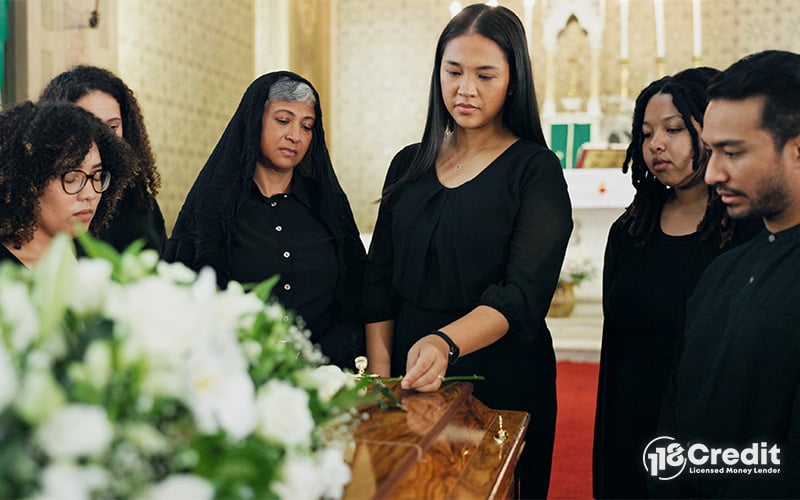Key Takeaways
- Funerals involve decisions on service type, religious customs, and burial or cremation.
- You will need to prepare legal documents such as a death certificate and burial or cremation permit.
- Choosing the right funeral provider can help streamline arrangements during an emotional time.
- Costs vary widely, so having a financial plan is important.
Where to Begin: Funeral Planning in Singapore
Losing a loved one is never easy. Beyond the emotional toll, making practical decisions about the funeral can be challenging, especially if arrangements must be made quickly. Understanding the key steps in funeral planning can help you manage both the logistical and emotional aspects during this sensitive period.
Here are some key elements that help with setting a budget for the funeral.
1. Deciding on the Type of Funeral Service
The first step in funeral planning is deciding what kind of service you wish to hold. In Singapore, options include:
- Religious services based on traditions such as Buddhist, Taoist, Christian, or Muslim practices.
- Secular services that focus on personal tributes without religious elements.
- Burial or cremation, depending on personal or cultural preferences.
- Wakes or memorials, which allow friends and family to gather and pay their respects before or after the funeral.
Your choice may depend on the wishes of the deceased, cultural customs, or practical considerations such as available venues and timing.
2. Understanding Paperwork and Legal Processes
Certain documents are mandatory for a funeral to proceed legally in Singapore. The most important include:
- Death certificate – issued by a doctor or hospital.
- Permit for burial or cremation – required before any burial or cremation can take place.
- Coordination with the National Environment Agency (NEA) for public crematoria or cemeteries.
If you are unfamiliar with these processes, some funeral directors can assist with paperwork as part of their services. This can help reduce administrative stress during a difficult time.
3. Choosing a Funeral Service Provider
Selecting a funeral provider is a crucial part of funeral planning. You may consider:
- Providers who specialise in your religious or cultural customs.
- Service packages that include everything from the casket to the ceremony arrangements.
- Transparent pricing and clear breakdowns of services included.
Some families prefer to personally arrange certain elements, while others choose full-service packages for convenience.
4. Anticipating Funeral Costs
The costs of a funeral in Singapore can vary significantly depending on the type and duration of the service. Common expenses include:
- Venue rental for wakes or memorials.
- Casket or urn costs.
- Floral arrangements and decorations.
- Transport for the deceased and mourners.
- Professional services such as embalming or cremation fees.

Urgent arrangements can add pressure, both emotionally and financially. If you need additional funds during this time, short term loans can help bridge the gap without long-term financial strain.
5. Financial Preparedness and Support
Funerals are often unplanned expenses, and managing them can be overwhelming when grieving. While some families may have insurance or savings set aside, others may need additional financial support. A money lender online can provide a faster application process, allowing you to focus on the arrangements rather than worrying about immediate funding.
Final Thoughts on Planning a Funeral in Singapore
Funeral planning is a deeply personal process that involves emotional, practical, and financial considerations. From selecting the right service type to managing costs and paperwork, having a clear understanding of the steps involved can make a difficult time more manageable. Options like instant loan approval services may help you handle costs quickly when time is of the essence.
If you find yourself facing unexpected expenses during this period, contact 118 Credit for transparent and flexible loan options designed to provide timely financial support. Our team can guide you through the process so you can focus on honouring your loved one with dignity and care.





